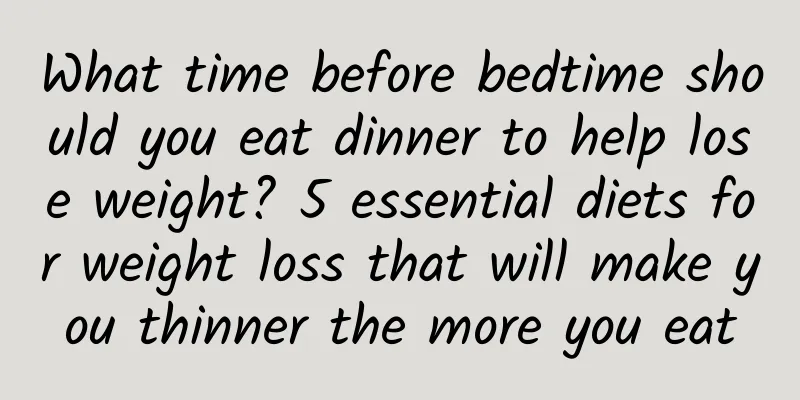Win at the starting point! Grasp the key period of school age and use three smart food education methods to solve it

|
According to the "Student Health Examination Data Results" of the Taiwan Ministry of Education, the proportion of overweight and obese children in Taiwan is as high as 30%, which will have a significant impact on their future physical and mental health. For example, changes in body image caused by obesity and subsequent obesity into adulthood increase the risk of metabolic syndrome and various chronic diseases. In order to help your children win at the starting line, don’t let them go to classes and cram schools to learn talents all day long. (Situational picture/provided) Remember to master the following three dietary tips to ensure your child's future success: First, it’s easy to develop healthy eating habits in the game Is your nutrition education still at the traditional classroom blackboard learning stage? The survey found that the effectiveness of learning through traditional reading is only 20%, about 30% with auditory learning, and up to 60% with hands-on learning. In addition, a study of more than 5,000 students from fifth grade to third year of high school in the United States, Hong Kong, and Japan showed that about 29% of students prefer visual learning, about 34% prefer auditory learning, and 37% prefer kinesthetic learning. If the three learning modes are combined, the learning effect can be increased to 90%. If the game method is combined to internalize the nutritional knowledge, it will have a profound impact on the health of children throughout their lives. In addition to gaming methods, such as parent-child planting and DIY cooking, there are also group board games that can be used to deeply imprint healthy eating knowledge into children's minds. In addition, using peer interaction to allow children to practice healthy eating in their daily lives are alternative educational methods that are worth considering for quality parents. (Photo provided by Nutrition 123 Healthy is so simple) Second, “slow eating” with your children Why don’t children eat vegetables? The answer may surprise parents. According to the 102nd "Eating Habits Survey of Elementary School Children", why do students eat less fruits and vegetables? The real culprit turned out to be the "parents". The survey results show that nearly 60% of the reasons why Taiwanese children do not consume enough fruits and vegetables are that there is no source of vegetables at home, and more than 40% of these children rarely eat with their families. In addition, the study also pointed out that in fact only 16% of school children do not like to eat fruits and vegetables. Facts have proven that most children are not deliberately picky eaters, they have simply adapted to life without vegetables at home. So, choose slow eating with your kids! Start with washing vegetables and cooking. Don’t let your children hang around in the living room or study. Cook and eat together, and let your children naturally love eating vegetables with their parents. Discuss with your children on holidays about buying healthy ingredients and dining utensils, which will help your babies develop good eating habits! (Photo provided by Nutrition 123 Healthy is so simple) Third, happy dining table and good mood According to the personality development theory of the famous developmental psychologist Erik Homburger Erikson, children from preschool to school age (4 to 6 years old) to school age (6 to 11 years old) are in the development stage of curiosity, responsibility, and interpersonal relationships. Failure of tasks in one stage will lead to major difficulties in the tasks of the next stage. Such as lack of guilt, retreat and sense of failure, which may even lead to the inability to complete the next stage of tasks. This is not only applicable to academic studies, but can also have a profound impact on a major issue in people's livelihood - "diet". Imagine that at what should be a warm and joyful family dinner, the topic everyone shares is the fun things happening at school with their children and friends, or they impatiently question each other about their test scores? If the answer is the latter, I believe that no matter how fresh and delicious the fruits and vegetables are on the table, they will not be able to withstand such a tiring bombardment, and will instead lose the educational and entertaining purpose of the dinner party. Over time, delicious and healthy meals will be left with nothing but shame and disgust after a long period of conditioned reactions. When you grow up and think of the sweet memories of being with your parents, don’t think of fried chicken and French fries. Parents, a change of thought at the dinner table will greatly affect your children's eating habits when they grow up. Finally, it is important to emphasize that the living habits of early childhood to school age will have a significant impact on the future and can protect children from obesity and improper eating habits throughout their lives. So, parents, what are you waiting for? Just a few small changes in life can give your children a head start in life! This article comes from: Nutrition 123 <Healthy and Simple> ※For more information, please see "Nutrition 123 <Healthy and Simple>" |
<<: Will drinking whole milk make you fat? Which one is more nutritious: full-fat, low-fat, or skim?
>>: What should I prepare for mountain climbing? Learn to overcome 3 sports injuries first!
Recommend
What causes dysmenorrhea in girls?
What causes dysmenorrhea in girls? Many women hav...
To prevent irregular menstruation, you must start with your daily diet
The prevention of irregular menstruation is somet...
What are the examination items for cervical precancerous lesions?
Find the cause of cervical precancerous lesions a...
What should you pay attention to when treating cervical erosion? Avoid these common misunderstandings when treating cervical erosion
Will cervical erosion affect pregnancy? How can i...
How to judge whether your fallopian tube is blocked after abortion? 3 symptoms of fallopian tube blockage
The fallopian tube is likely to be blocked after ...
Irregular menstruation is related to the use of some drugs
The cause of irregular menstruation is not only r...
Try to find ways to treat adnexitis in your life
As a frequently-occurring disease, adnexitis will...
Eat starch for dinner to lose weight? Rely on 2 weight loss hormones
Want to lose weight, avoid starchy foods for dinn...
5 types of snacks that office workers should avoid to prevent weight gain
It's time for afternoon snack again. Open the...
How much does uterine fibroid surgery cost? What are the surgical methods for uterine fibroids?
The cost of uterine fibroid surgery. Women should...
Indications and contraindications for medical abortion
Medical abortion, also known as drug abortion, ha...
Tomatoes protect the heart and prostate, and have these unexpected benefits! Are tomatoes cooked and eaten correctly?
There is a proverb in Italy: "When tomatoes ...
What do I need to prepare for an abortion? Do I need my family members' signatures for an abortion?
In recent years, with the progress of society and...
The "Slim Pen" is reportedly out of stock, is this one also out of stock? Doctor: Be careful of urinary tract infection and ketoacidosis
The drug commonly known as "Slim Pen" w...
What is suitable for patients with cervical erosion? 8 kinds of food suitable for patients with cervical erosion
1. Stew a black-bone chicken and eat it regularly...









